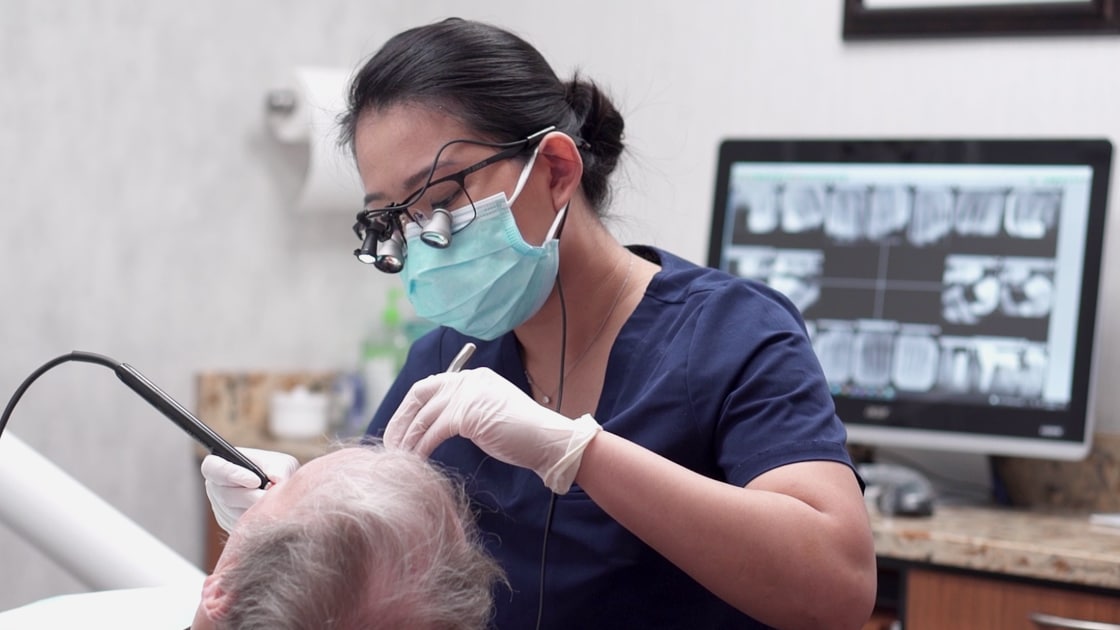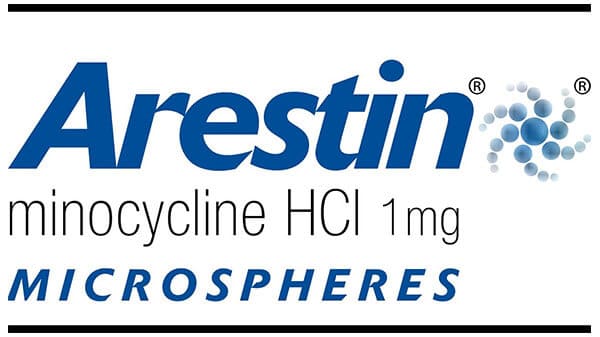
Chimon Family Dentistry offers periodontal procedures in Albertson, NY. Call 516-877-2737 to make an appointment for a consultation.
What Are Periodontal Procedures For?
Periodontal (gum) disease is one of the leading causes of tooth loss. It also causes gum recession and a shrinking jawbone. Periodontal procedures help to treat and control gum disease.
Benefits of Periodontal Procedures
Periodontal procedures help relieve some gum disease symptoms and create a more favorable prognosis. Here are several benefits of these procedures:
Preserve Healthy Gums
When a patient has gum disease, they develop deep pockets between their gums and teeth. Plaque, tartar (calculus), and food collect in these pockets, inflaming gums and causing them to recede. Treating these pockets helps to keep the roots safe and free of gum and bone damage.
Reduce Tooth Loss
When gums recede, roots become exposed. Exposed roots cause bone loss in the jaw, which in turn causes tooth loss. Periodontal treatment restricts the progression of gum disease and enables patients to keep their natural teeth later in life.
Improve Appearance
Gum grafts can improve the appearance of your smile. If you feel self-conscious about too much of your teeth showing when you smile, a gum graft can bring your appearance into balance.
Procedures Offered
Here are some of the procedures we offer to help people with gum disease:
Periodontal Maintenance Program

Maintenance visits for patients with periodontal disease involve comprehensive oral exams and teeth cleaning. The dentist or hygienist uses a unique ultrasonic, water-cooled instrument to loosen large pieces of tartar. Hand tools remove any remaining deposits.
The dentist will work with the patient to determine the exact schedule for periodontal maintenance visits. Some patients need to have comprehensive cleanings more than twice a year.
Scaling and Root Planing

Scaling involves using dental instruments to reach beneath the gum line and remove dental plaque and tartar. After scaling, the dentist performs a planing procedure that smooths the tooth's root. When the dentist planes the root, the gum is more likely to heal and attach successfully.
Periodontal Splinting

The dentist may recommend periodontal splints if teeth are loose due to bone loss. Splinting the tooth can help it become stable. Crowns, wire, ribbon, and veneers are a few examples of methods that dentists use to splint teeth in place.
Arestin®

This product is a potent antibiotic powder that the dentist inserts in the pockets around the teeth. This medication helps the infection under the gum resolve.
Gum Grafting

Gum recession exposes the roots and causes damage to the bones and teeth as well as heat and cold sensitivity. Dentists use surgical techniques to graft gum tissue where recession is present. Some patients have gum grafting for cosmetic reasons like a "toothy" smile.
During a gum grafting, the dentist takes healthy tissue from elsewhere in the mouth and places it on the receded areas.
Bone Grafting

Frequently, gum disease causes bone loss in the jaw. Bone loss leads to loose teeth and a permanently "sunken" look that many consider prematurely aged. In areas where bone loss occurs, dentists can reverse it through grafting. Grafting involves introducing fragments of healthy bone into the area around the jaw and encouraging it to grow into the natural bone. Bone can be synthetic or taken from another part of the patient's body.
Osseous Surgery (Pocket Depth Reduction)

This procedure smooths and reshapes the bone under the receded gum tissue. It helps stubborn pockets that have not responded to other treatments heal, preventing tooth loss.
Call 516-877-2737 to schedule an appointment.
Why Choose Chimon Family Dentistry?
Our dentists have created a non-judgmental, family-friendly atmosphere. Even if it has been a long time since your last dental work, we will help you overcome your gum problems.
Frequently Asked Questions About Periodontics
Here are several patient questions:
What are the signs of gum disease?
The first sign to appear is bleeding gums when brushing or flossing your teeth. Gums may appear red and swollen. These symptoms point to gingivitis, the earliest stage of gum disease.
Next, you may notice gum recession. You may also see that your teeth are becoming loose or have more space between them.
What causes gum disease?
Poor oral hygiene causes gum disease, along with heredity. People who do not brush or floss properly are more likely to have gum disease. Gum disease is preventable for most patients if they follow practical home care instructions and attend all routine appointments.
Is gum disease curable?
Gum disease is treatable and can be reversible in its earliest stage, known as gingivitis. If gum disease progresses unchecked for years, dentists can treat it, but lingering damage may be left behind. Tooth loss, gum recession, and jaw erosion could occur. If you suspect gum disease signs, you should see a dentist as soon as possible since early treatment makes a big difference.
Call Chimon Family Dentistry
If you have noticed the signs of gum disease, don't wait to call a trusted dentist. Our office can help you make a treatment plan that combats gum disease and preserves your teeth well into the future.

